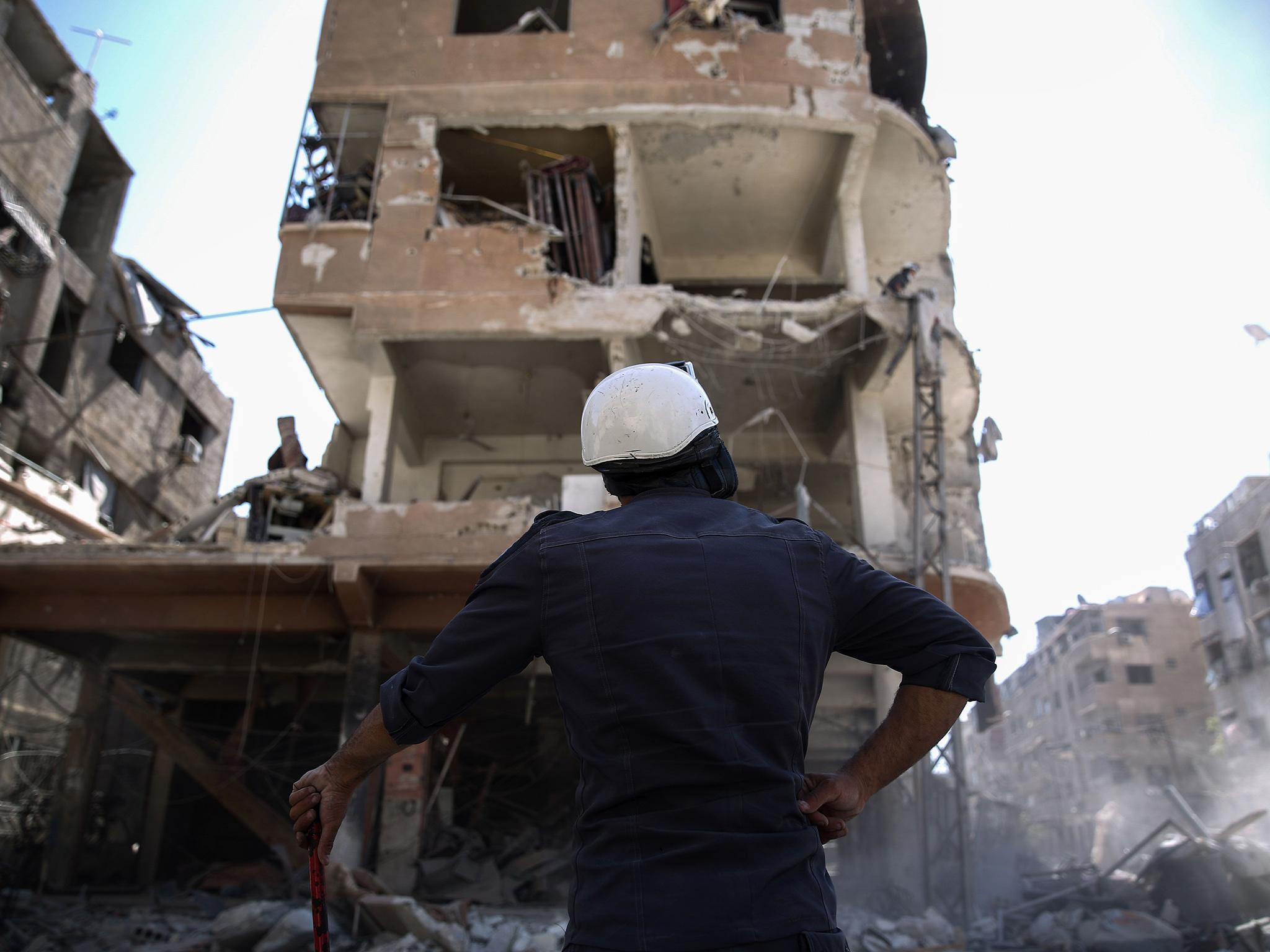Who will win the Nobel Peace Prize? We don’t know, but here are some possibilities

The Nobel Prize for Peace will be announced Friday in Oslo. It's awarded by a committee of five appointed by the Norwegian parliament. There's no shoo-in candidate this year, but a think tank in Norway has issued a shortlist of front-runners.
Here are the top five candidates, according to Kristian Berg Harpviken, the director of the Peace Research Institute Oslo.
The White Helmets
In besieged rebel-held areas of Syria, an all-volunteer team known as the Syrian Civil Defense is on the front lines rescuing and treating civilians trapped within the country's many battlefields. By some counts, the group, better known by their nickname “White Helmets,” saved up to 60,000 people, often at tremendous risk to themselves. Their heroism has earned plaudits overseas and is even the subject of new documentary available on Netflix. Detractors say that the group is too cozy with foreign powers and some Islamist factions. For many Syrians, though, they are the only difference between life and death.

Svetlana Gannushkina
The Russian mathematician and human rights activist has been a perennial contender for almost a decade — she's a champion of migrant rights, an advocate for a Russian reckoning with the evils of the Soviet past, and a defender of justice and the rule of law. Gannushkina, 74, is Harpviken's top pick this year.
Jeanne Nacatche Banyere, Jeannette Kahindo Bindu and Dr. Denis Mukwege
The fractious conflicts that have roiled Congo for years have seen the hideous use of rape as a tactic of war. Through their church group, “Mama” Jeanne and “Mama” Jeannette have sought out the many survivors of rape, built a network of support for victims, and provided medical treatment and other assistance. Mukwege, a leading gynecologist, has aided thousands of victims of rape and played a key role in publicizing the brutality of the violence to the outside world.
“By awarding the trio’s local, grass-roots and on-the-ground actions with a Nobel Prize,” Harpviken notes, “the Nobel committee has a chance to strengthen the visibility of sexual violence in war as a global problem.”
Ernest Moniz and Ali Akbar Salehi
Harpviken believes that among all the politicians and diplomats involved in negotiating Iran's nuclear deal with world powers, the U.S. secretary of energy and the head of the Iranian atomic agency perhaps deserve the greatest recognition. They played lead roles as negotiators over the pact that has quieted fears over Iran's nuclear capabilities. Harpviken refers to their collaboration as a “fine example of science diplomacy — the activation of scholarly competence to build bridges between people and nations.”
Edward Snowden
The former National Security Agency whistleblower may be a bête noire in Washington, but he commands tremendous respect around the world. His nomination by a pair of Norwegian academics this year triggered fevered speculation over whether Russia, his current host-in-exile, would let him leave to receive the award — and what would happen once he lands in Norway.
Pope Francis: The pontiff has made waves on countless fronts since assuming the papal seat, speaking out forcefully on a host of issues from the rights of migrants and refugees to the dangers of economic inequality and climate change. Could he be the first pope to win the prize?
The Aegean Islanders: The inhabitants of Greek islands close to Turkey, from whose coast countless migrants and refugees have set sail to Europe, have been caught up in a global maelstrom. No matter the policy paralysis on the international stage, fishermen and locals on islands such as Lesbos have rescued drowning refugees, helped those who reach the shore and welcomed many more into their homes.
“Let’s hope they do win,” Nikos Xydakis, Greece’s deputy foreign minister for European affairs, told the Guardian. “What we saw was ordinary people, with no order from above, respecting tradition and acting out of sheer hospitality and solidarity. What they did shows the best of humanity in the simplest way.“
Angela Merkel: The German chancellor was all the rage in 2015, when Time magazine named her Person of the Year, in part for her resolute championing of the plight of Syrian refugees. But the past year has somewhat unraveled her position, with a populist backlash against migrants threatening her political future and prompting her to voice regrets over her policies.
Juan Manuel Santos and Timochenko: Sunday's shock referendum results in Colombia, where voters delivered a surprising “no” verdict to a proposed peace process between the state and the leftist FARC rebels, was a jarring halt to a historic moment: the end of one the world's longest, most brutal insurgencies and the prospect of political reconciliation. After the referendum, though, there are fears that a cease-fire may collapse. Santos, the Colombian president, and the FARC leader, Rodrigo Londono, known by the nom de guerre Timochenko, had been widely tipped as potential joint Nobel Prize winners. Their chances for the award — not unlike Colombia's hopes for peace — may have just gone up in smoke.
Join our commenting forum
Join thought-provoking conversations, follow other Independent readers and see their replies
Comments
Bookmark popover
Removed from bookmarks